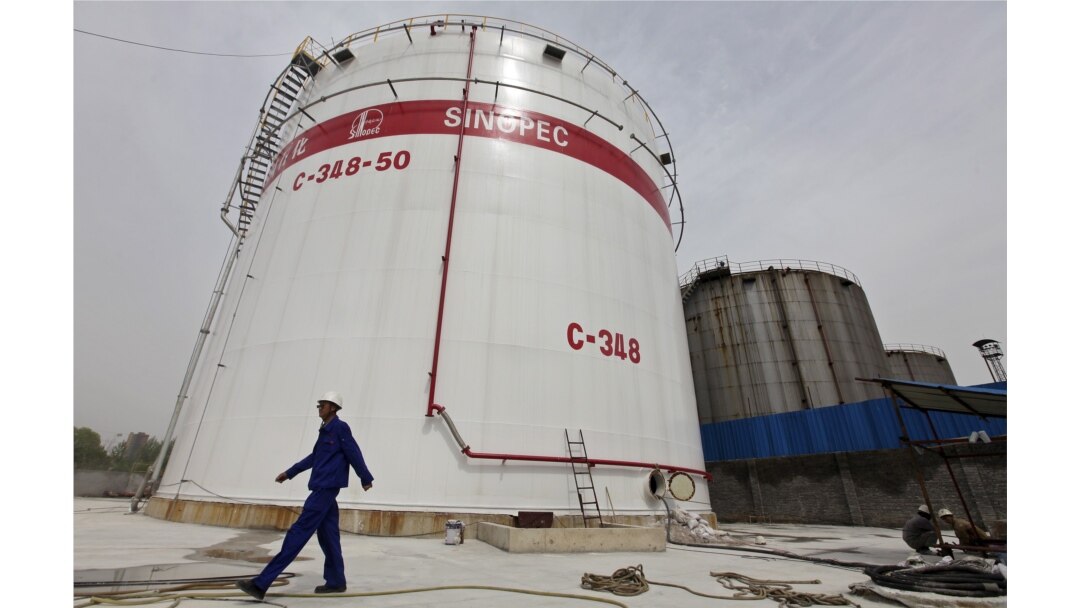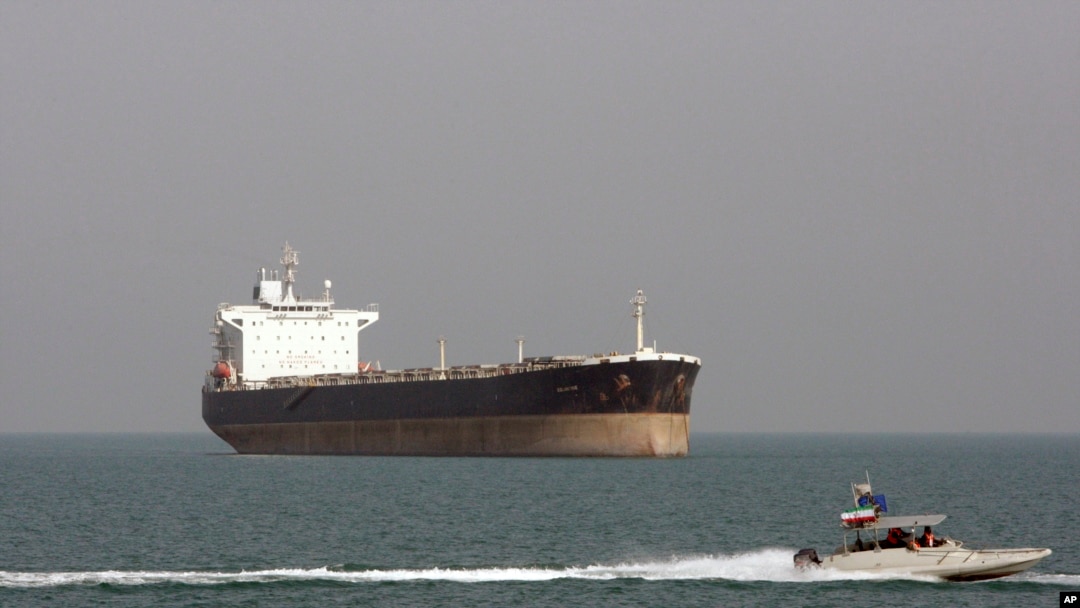This article originated in VOA’s Persian Service. State Department Correspondent Nike Ching contributed from Washington.
The Trump administration has reacted cautiously to growing evidence of recent Iranian oil deliveries to China in potential violation of U.S. sanctions, renewing a U.S. vow to drive Iran’s oil exports to zero.
In a statement to VOA on Wednesday, a State Department spokesperson said: “We are committed to our goal of bringing Iran’s oil exports to zero and depriving the Iranian regime of oil export revenues.”
The spokesperson added that U.S. officials are in “regular contact” with Beijing regarding Washington’s maximum economic pressure campaign on Iran. As part of that campaign, the U.S. recently called on China and all other nations that had purchased Iranian oil to end those purchases from May 2. The U.S. campaign is aimed at pressing Iran to negotiate a new deal to end its perceived malign activities.
Oil delivery confirmed
In a Tuesday broadcast posted online by Iran’s Jamaran news outlet, state television confirmed that Tehran completed a delivery of 1 million barrels of crude to China last month using an Iranian tanker named Salina. Iran’s semi-official Tehran Times newspaper published an initial report about the delivery last week, saying Salina had arrived at the Chinese port of Jinzhou June 20 to deliver the oil to the Jinxi refinery of state-run China National Petroleum Corporation (CNPC).
Several international organizations that monitor oil shipments, including Kpler and VesselsValue, also have confirmed the Salina oil delivery to China, according to published reports this week.

FILE - An employee walks past oil tanks at a Sinopec refinery in Wuhan, Hubei province April 25, 2012.
In further reports published since Tuesday, oil tanker monitoring groups said a second Iranian tanker completed a delivery of 2 million barrels of oil to Chinese state-owned producer Sinopec in recent days.
TankerTrackers.com said the tanker is named Horse and delivered the oil to Sinopec subsidiary Tianjin Port Shihua Crude Oil Terminal Company at the Chinese port of Tianjin.
In a Tuesday interview with Bloomberg on a visit to Vienna, Iranian Oil Minister Bijan Namdar Zanganeh said Tehran is making efforts “day and night” to export its oil internationally. He declined to name any of Iran’s current customers, saying that doing so would help the U.S. in its efforts to enforce oil sanctions against Tehran.
A Wednesday report by Iranian state news agency ISNA quoted Foreign Minister Mohammad Javad Zarif as criticizing state TV network IRIB for confirming the recent Iranian oil delivery to China, saying such disclosures “hurt” the national interest.
Beijing has criticized the U.S. for implementing a unilateral ban on Iranian oil exports, but has not declared any purchases of crude from Iran since the ban took effect in May. In April, a Chinese foreign ministry spokesman said China’s economic ties with Tehran were “reasonable and legitimate.”
US sanctions
The U.S. re-imposed sanctions on Iranian oil last November and granted China and seven other governments waivers to keep importing a limited amount of crude from Iran until May. China previously had been Iran’s biggest oil customer.
In a Wednesday phone call with VOA Persian, Katherine Bauer, a former senior U.S. policy adviser for Iran in the Treasury Department’s Office of Terrorist Financing and Financial Crimes, said it appears that China is continuing to import a limited amount of Iranian crude as a return on Chinese investments in Iran’s energy industry, rather than purchasing the oil with cash.
“It is a gray area as to whether or not that (type of oil import) is subject to U.S. sanctions, because there is no purchase associated with it,” said Bauer, a fellow at the Washington Institute for Near East Policy.
Bauer said importing “equity barrels” of Iranian oil as a return on investment means China gets to demonstrate a continued economic relationship with Iran for the purpose of ensuring a stable supply of energy, while Beijing avoids making any statement about importing oil in violation of U.S. sanctions.
But John E. Smith, a former director of the Treasury Department’s Office of Foreign Assets Control (OFAC) under President Donald Trump, told VOA Persian that he does not see Chinese “return on investment” imports of Iranian oil as a gray area.
“The U.S. said that it would sanction any significant transactions involving the import of Iranian oil and it defined ‘significant transactions’ to be very broad to allow the U.S. to go after almost any type of behavior,” Smith said in a Wednesday phone interview. “If the U.S. declines to find barter or other types of arrangements to be a ‘significant transaction’ for the import of Iranian oil, then it leaves a gaping loophole for the continued import of Iranian oil around the world.”
Smith, a partner at global law firm Morrison & Foerster, said the Trump administration should move forward with sanctions against those found to be importing Iranian oil, or provide waivers or public guidance to explain why sanctions are not being imposed.
“In many respects, U.S. credibility and the power of U.S. sanctions are at stake,” he said. “If the administration says it will utilize sanctions for a particular behavior and it does not, then its sanctions can lose their impact around the world.”
The original version of the penultimate graph of this story has been expanded for clarity.


